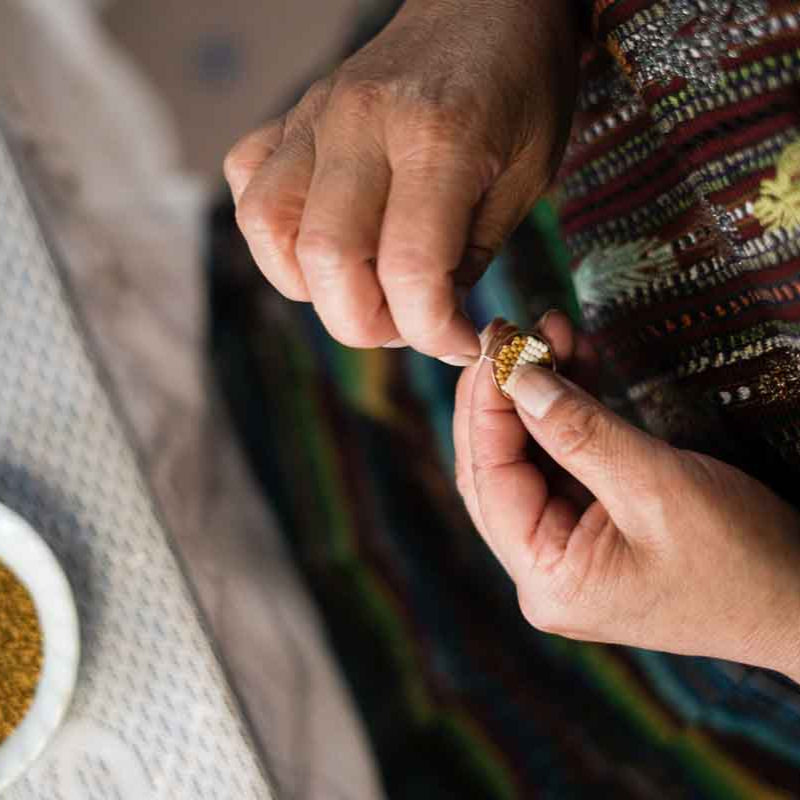
17 cents/hour
Share
In Bangladesh, the women are calling on a 17 cents/hour increase to fill the gap in their wages. But the race to the bottom dictates that a tee should cost less than the price of a peppermint mocha, so they are denied. While large amounts of goods are purchased, opportunity for these garment workers is squandered. What a beautiful chance for a huge amount of women - poured right down the drain with a latte. And for what? No one is winning, spare a few.
If garment workers were paid the extra cents an hour, or a living wage, it would improve the lives of massive amounts of women who live in the large cities with factories and have sewing skills. Yes!
Yet fair trade would still play an important role in the lives of women by meeting them where they live and equipping the unskilled. It serves the woman who lives remotely and would otherwise have to travel for work and leave her children in the care of others for extended periods of time. It equips the unskilled woman living on the streets by training her in a high level of jewelry making. It accommodates the single mother who already has a job but can work extra in the flexible, spare moments at home while caring for her family.
Yet fair trade would still play an important role in the lives of women by meeting them where they live and equipping the unskilled. It serves the woman who lives remotely and would otherwise have to travel for work and leave her children in the care of others for extended periods of time. It equips the unskilled woman living on the streets by training her in a high level of jewelry making. It accommodates the single mother who already has a job but can work extra in the flexible, spare moments at home while caring for her family.
Want to learn more? Hear from Kalpona Akter, human rights activist, former child worker and Bangladeshi union leader on episode 5 of Wardrobe Crisis.

(Image from Akter's Twitter)

